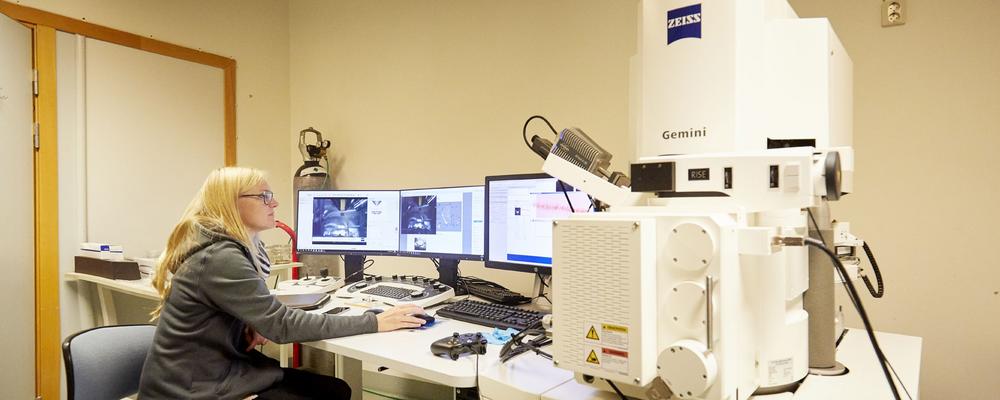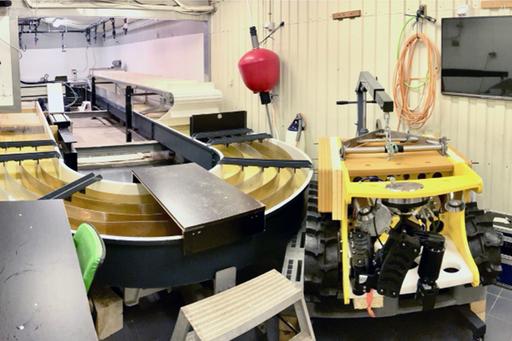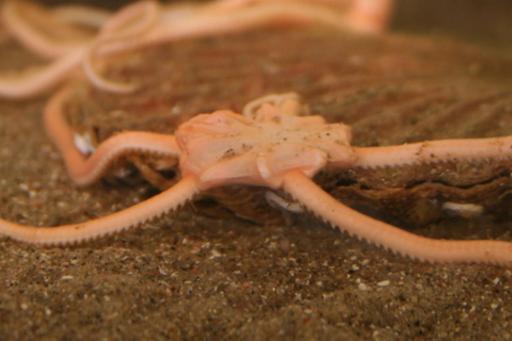
Labs and facilities
These pages provide an overview of our laboratories and the equipment available at the centre. You can also find lab rules, a link to the chemical management system and instructions regarding risk assessment of lab work.
Labs and instruments
- Microbiology lab suited for with risk class 2 microbes.
- Radiation lab equipped with a liquid scintillation counter.
- Particle counter.
- Automatic alkalinity titration device (contact Sam Dupont).
- Inverted and upright light microscopes and stereo microscopes for courses.
- UV-VIS spectrophotometer and plate reader.
- Advanced microscopes with cameras (inverted fluorescence microscope with micromanipulator, motorized light- and stereo microscopes with and without fluorescence).
- Scanning electron microscopes (SEM) with Raman detector (contact Martin Hassellöv).
- FTIR microscope (contact Martin Hassellöv).
- ICP-MS
- Portable CTD.
- Turner fluorometer.
- Nutrient analyzer Quaatro.
- Clean room and lab suited for work with trace metal analysis
- Basic multi-purpose course-labs.
Read before working in our labs
Lab Manager
Lars Ljungqvist
Research engineer
+46 766-22 95 06
lars.ljungqvist@gu.se
Thermoregulated rooms and intake halls
At Kristineberg you may work in so-called thermoregulated rooms: rooms where air and/or water temperature can be manipulated.
We have six thermoregulated rooms where you can control both water and air temperature, floor areas 15-37 m2. Some of them have lighting fixtures for regulation of circadian rhythms. Two additional thermoregulated rooms exist, where only air can be regulated.
There are also two intake halls where field samples can be handled and stored in deep or surface water.
Contact
Rickard Tarler
Technical assistant
+46 31-786 95 07
rickard.tarler@gu.se
Sea water systems
Through-flowing filtered sea water is one of our most important facilities. We have deep water, with relatively high and stable salinity, and surface water, in which both salinity and temperature varies. Thanks to water reservoir and alarm to caretaker, the sea water systems are quite reliable.
Contact
Benny Fredriksson
Property manager
+46 722 17 75 59
benny.fredriksson@akademiskahus.se
Wave lab
The wave mesocosm laboratory at Kristineberg makes it possible to test how different type of waves affect plants and animals. See our researcher Eduardo Infantes explain how it works in the video below.
Contact
Eduardo Infantes
Researcher
+46 766-22 95 67
eduardo.infantes@bioenv.gu.se
Sedimentology and seafloor robot lab
The Experimental Sedimentology and Seafloor Robot Laboratory is a stand-alone, 150 m2 building equipped to facilitate physical experiments to study particle dynamics in marine environments. The lab is located next to the Gullmarsfjord with access to filtered surface and deep water.
Read more about the laboratory

Contact
Laurenz Thomsen
Professor
+46 31-786 30 10
laurenz.thomsen@gu.se
Research on animals
We can assist you both before your arrival and during your stay with the collection of certain species and other materials, especially from the waters around Kristineberg. We have the equipment and experienced staff for collection using most methods. At Kristineberg, we can keep the speciments alive until you set up your experiment or have your course. We can also assist with the setup of your experiments. The cost depends on the scope of the work.
Ethical permit required
When it comes to keeping and studying vertebrates, such as fish, these require an ethical permit that must be applied for by the responsible researcher well in advance of the work. When applying for ethical approval, a free consultation with our veterinarian and laboratory animal manager is included.

Contact
Leon Green
Laboratory Animal Manager
+46 70-476 14 80
leon.green@bioenv.gu.se
Field equipment
At Kristineberg the following equipment are available, for use from land, in shallow water or from our smaller boats:
- 1 handheld trawl with otter board
- 1 shore seine (special legislation when catching fish)
- 1 small purse seine
- 6 aquascopes
- approx. 25 waders
- approx. 20 dip nets of different kind
- 1 drop-trap (0.5 m2)
- 1 drop-trap (1 m2)
Workshop and service
We have a fully equipped workshop designed to handle tasks involving engines, wood, metal, and plastic. Our staff is on hand to assist with new fabrications, repairs, and maintenance. We handle minor tasks without any additional charges. For extensive projects, reach out to our technicians for a detailed cost estimate. Please be aware that only authorized workshop technicians are allowed to operate within the primary workshop.
Dedicated Research Workshop
We offer a specialized workshop for researchers and staff, outfitted with essential tools and workbenches. This space is ideal for conducting straightforward tasks independently.
Contact
Magnus Karlén
Technician
+46 31-786 96 68
magnus.carlen@gu.se